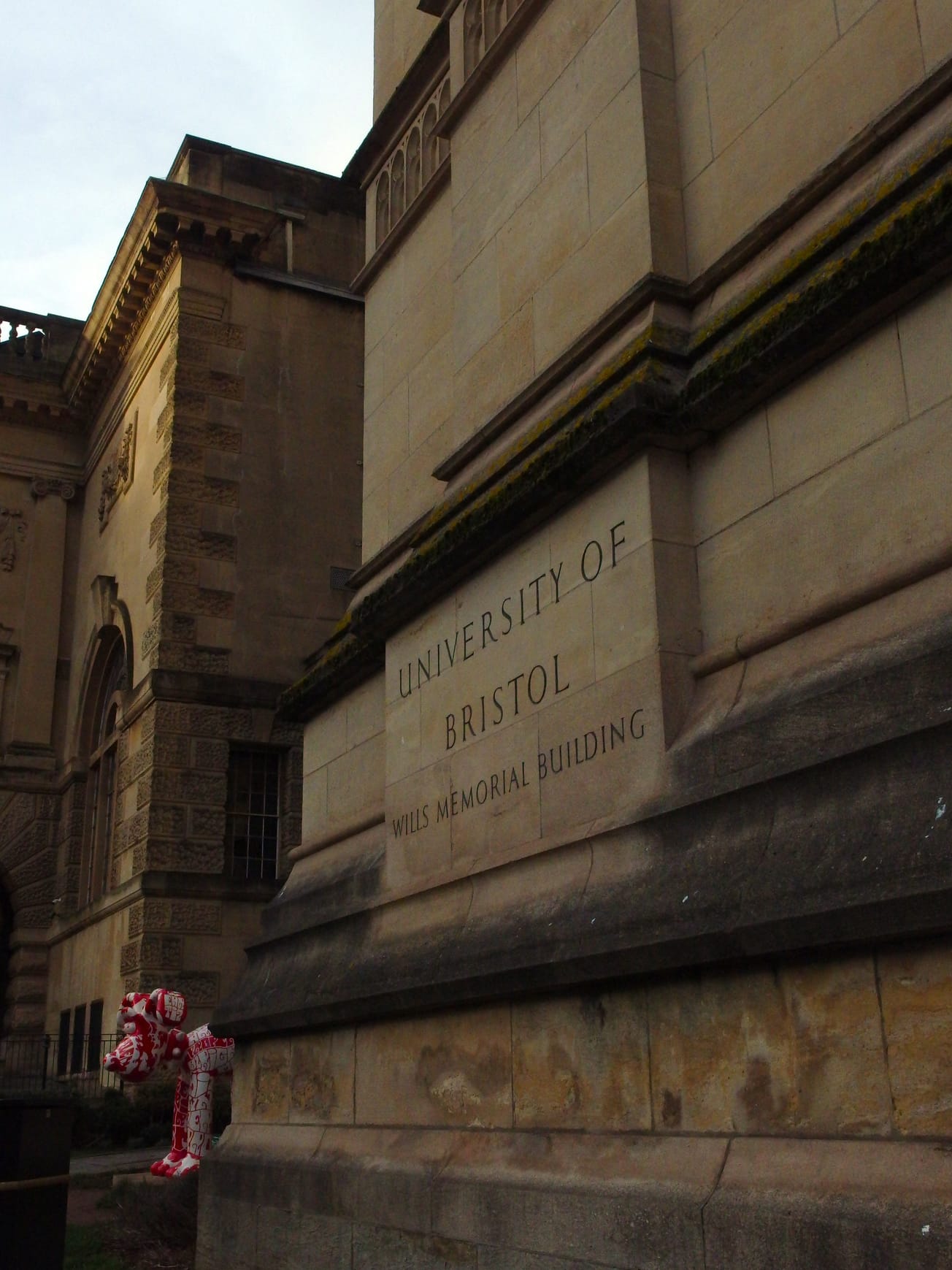By Alice Clarke, SU Correspondent and Megan Evans, News Editor
Earlier this year Bristol Students’ Union launched a survey to start a research project into consent culture and sexual harassment at the University of Bristol.
Commissioned by Jason Palmer, Equality, Liberation and Access Officer 2019-2021, the research follows on from Bristol SU’s 2018 Let’s Talk about Sex survey which reported that over half of students who completed the survey had experienced sexual harassment.
The initial online self-selection survey which formed the first part of the ‘No means No’ research was completed by 885 students. This survey has provided a series of recommendations for Bristol SU and the University of Bristol to work towards.
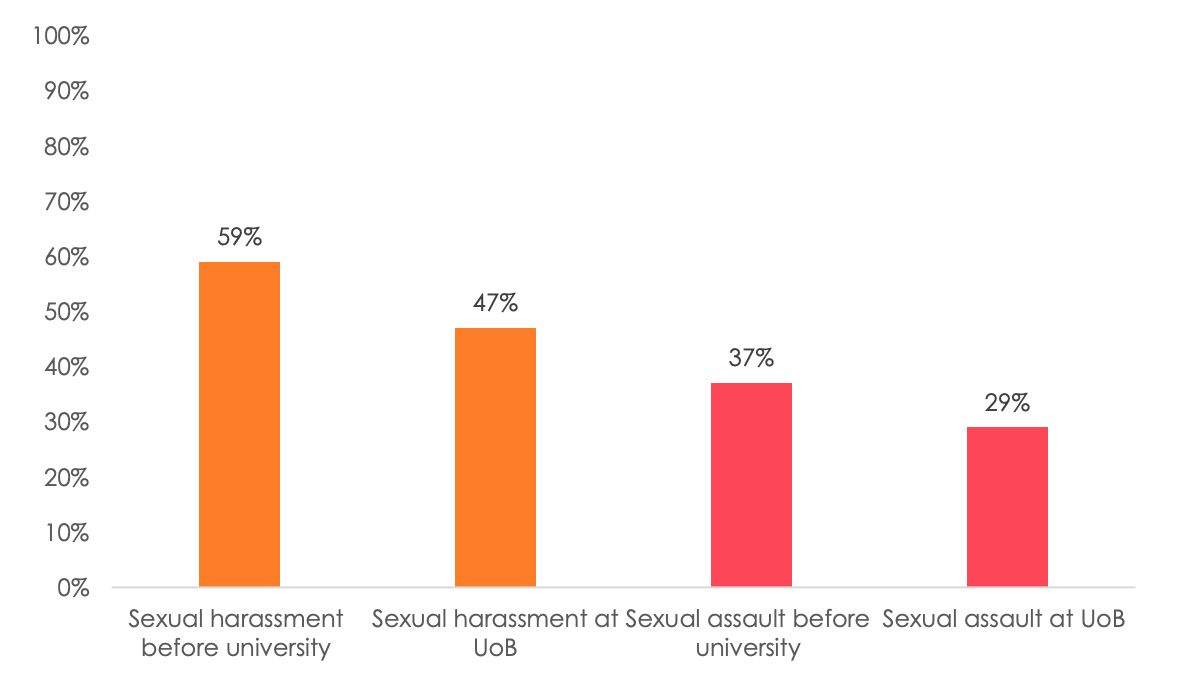
The report notes how, though the survey was open to all students, ‘women, white students, disabled students, and students aged under 21 were overrepresented,’ therefore suggests this be taken into account when interpreting results.
Some of the key findings within the research highlighted areas such as students not feeling comfortable asking for or verbalising consent, low awareness of where to go for help, and 1 in 2 students expecting to experience sexual harassment at university.
The report split the research findings into 5 categories: consent culture at the University; awareness of support; experiences of sexual harassment and assault; reporting harassment; and assault and seeking support.
The report notes how ‘almost half of respondents had experienced sexual harassment since starting university, and 29% had experienced sexual assault,’ with sexual assault most often being committed by a fellow student.
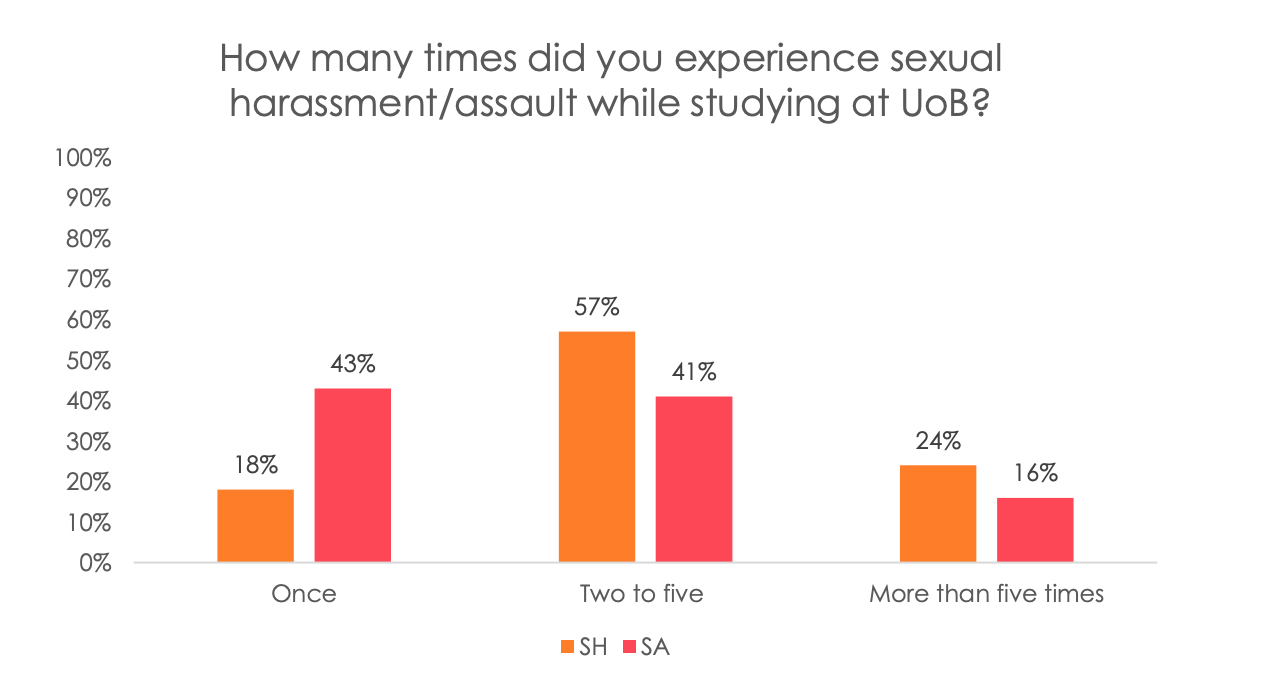
Most often respondents reported that harassment and assault had occurred at clubs, pubs or on the street rather than campus itself. This highlights the importance of a city wide, cohesive effort to combat sexual violence as highlighted in this report. This comes just a few weeks after two 18 year old men were arrested after viral footage from Pryzm Bristol showed a woman's drink being spiked at the nightclub.
When asked ‘what more, if anything, do you think the University and the Students' Union can do to build a stronger culture of consent on campus?’, there was a strong emphasis by many respondents on making the consequences to those who commit sexual assault very clear. There were calls for a clear and visible policy on what happens to students who commit sexual harassment or assault were also prominent in the responses. Many would like to see serious repercussions for the perpetrators.
One respondent said, ‘EMPHASISE that if someone has sexually assaulted another person in university, it won't only be the university that gets involved, the POLICE will be involved if the victim presses charges, and the perpetrator will face severe consequences. The university is not a "bubble" where you will get a slap on the wrist.’
The report revealed very low levels of awareness of where to seek support from the University if they or someone they know had experienced sexual assault or harassment. Only 8% of respondents reported that they knew what services were offered by the University's Sexual Violence Liaison Officers and similarly, just 11% of respondents were aware of the services provided by Report and Support service.
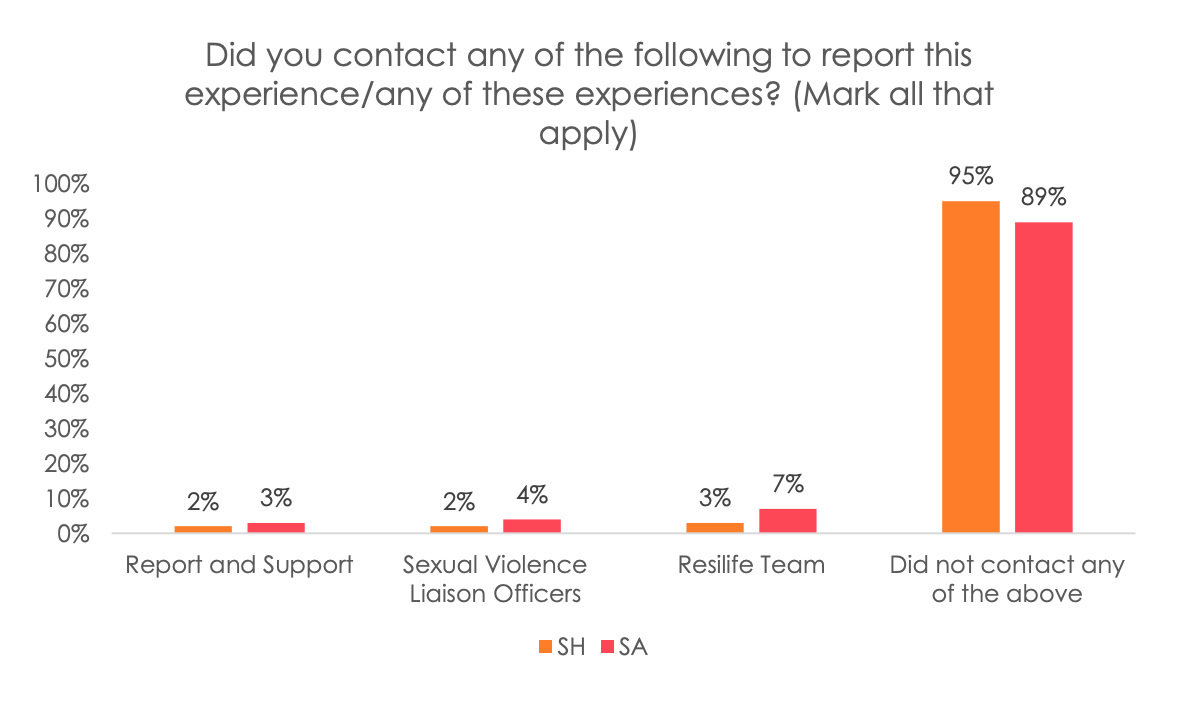
Of this small number that were aware of these services, an even smaller number (less than 30) again had felt comfortable enough to share experiences of reporting sexual violence to the university. The report notes how of this number, ‘students appeared to have positive experiences reporting to Sexual Violence Liaison Officers, but more mixed experiences reporting their experiences to ResiLife or through the University’s Report & Support service.’
Leah Martindale, the current Equality, Liberation and Access Officer said:
‘The fact that 1 in 2 students expect to experience sexual harassment at university shows the wider issue around consent and harassment in society. These issues recur on the news again and again – it's heartbreaking to see. I want this research to help us switch up what we do at the University, but we all have a responsibility for change in wider society.’
Tackling Sexual Violence and Misconduct and improving the culture of consent at Bristol is one of the 2021/22 Bristol SU Officer team priorities.
Leah continues:
‘The aim of the research was to develop our understanding in order to help us improve the support available to students and inform our approach to sex and consult education at Bristol. Some of the statistics from this research are really worrying and highlight some of the wider issues around consent and harassment in our society.
‘I’m really determined that we use this research to improve the lives of all Bristol students. The results have given us a better understanding of what needs to happen next and have provided a good evidence base to present to the university.’
Bristol SU will work in partnership with the University of Bristol on these published recommendations and hold them and ourselves accountable for tackling sexual violence in our student community.
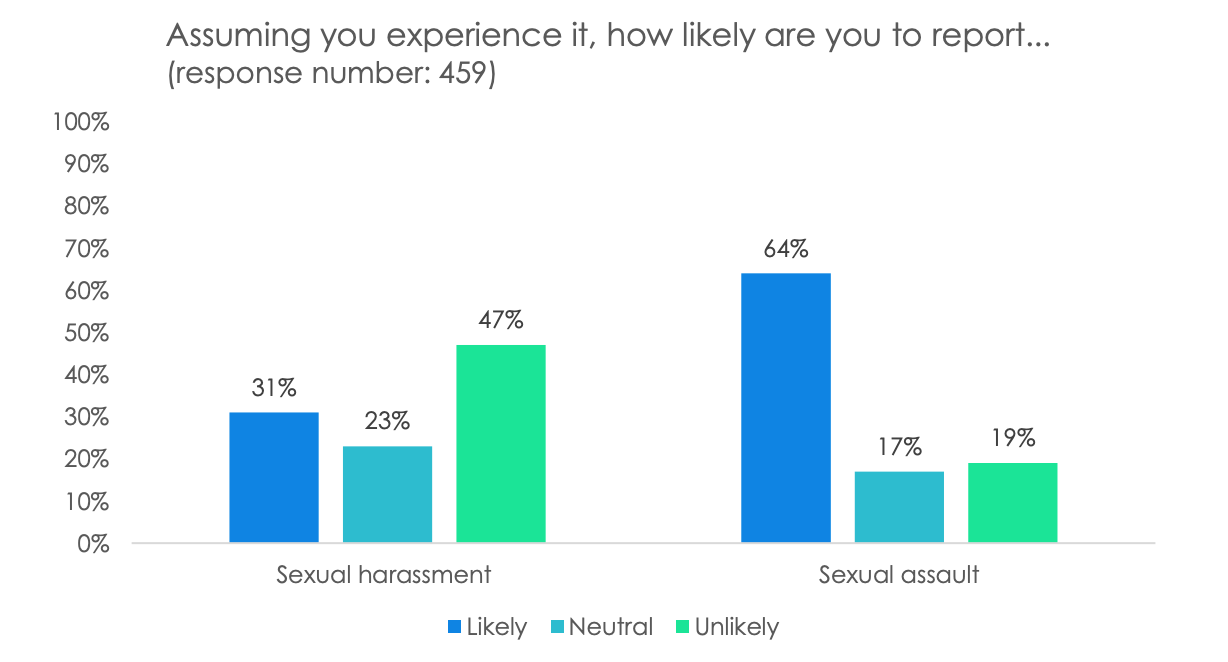
Claire Slater, Director of Student Life and Well-being at the University of Bristol, said:
‘We encourage all students who have experienced harassment in any form to contact us even if they don’t want to tell the whole story, it’s important they tell us something has happened so we can signpost them to, or offer, appropriate support. This can be done anonymously via Report and Support if they prefer.
‘Along with other universities, Bristol has a team of Sexual Violence Liaison Officers who can provide specialist advice – referring to services both inside and outside the university as appropriate. Since these new roles have been introduced, we’ve seen a steady increase in the number of students coming forward and those we’ve been able to help.
‘We also work with students to raise awareness of the importance of consent when they first come to Bristol, with the aim of changing behaviours and attitudes. We are committed to continuing to work in partnership with Bristol SU to address this important issue.’
‘Bristol SU has already committed to continuing work with students groups to increase understanding and knowledge to tackle sexual violence. We will also look to implement the recommendations that will improve our responses as an organisation, such as ensuring our governance structures, policies and procedures are supportive and empowering for survivors.’
The SU will begin to conduct the second phase of the project in November. This will investigate consent culture in student groups and consent education further through a series of focus groups. Those who would like to be involved in the next phase of the project, or read the full report, can visit bristolsu.org.uk/no-means-no.
Featured image: Bristol SU
If you have experience of sexual violence then you might find one of the following services useful:
- The Bridge can provide guidance on ways of reporting rape or sexual assault www.thebridgecanhelp.org.uk/
- At the University a Student Services Officer can help you to identify the options available to you with regards to reporting an incident of harassment or assault. reportandsupport.bristol.ac.uk/
- For help and guidance around sexual violence and abuse please contact: Somerset & Avon Rape and Sexual Abuse Support: Women & Girls 0808 801 0456, Men & Boys 0808 801 0464
- If you wish to access support you may find the Bristol Survivor Pathway helpful, which can direct you to appropriate services in the Bristol area: www.survivorpathway.org.uk/bristol/



